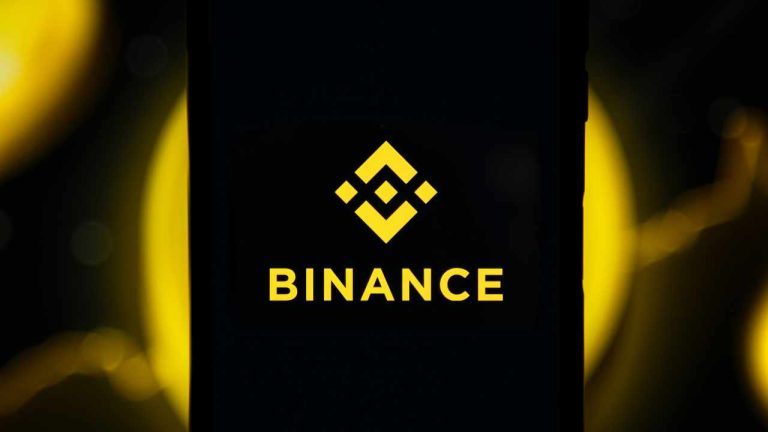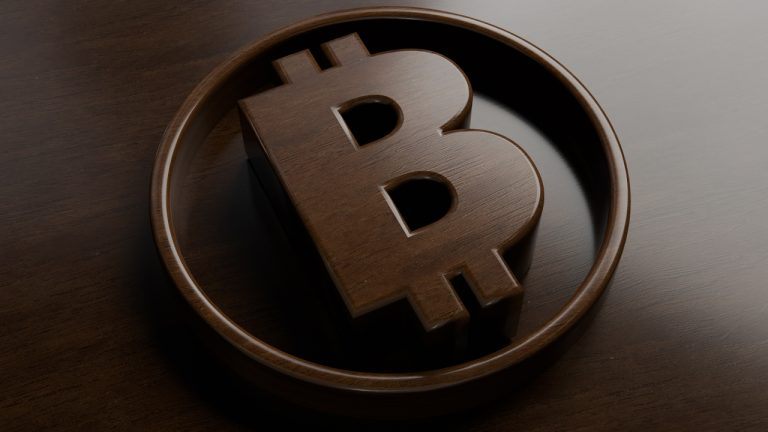 James Howells is suing Newport City Council after a decade-long fight to recover a hard drive containing 7,500 bitcoins, now worth nearly $500 million, mistakenly dumped in 2013. The council has repeatedly denied excavation requests, citing environmental concerns. Howells claims the data is recoverable. Council Sued Over Lost $500M Bitcoin Hard Drive James Howells, an […]
James Howells is suing Newport City Council after a decade-long fight to recover a hard drive containing 7,500 bitcoins, now worth nearly $500 million, mistakenly dumped in 2013. The council has repeatedly denied excavation requests, citing environmental concerns. Howells claims the data is recoverable. Council Sued Over Lost $500M Bitcoin Hard Drive James Howells, an […]

Private investigation firm Lionsgate claims it can help recover stolen crypto when going straight to the police fails.
If you’ve been scammed, it might seem like your crypto is lost forever. Decentralized blockchain wallets can’t be frozen in the way bank accounts can. And even if the scammer tries to cash out at a regulated exchange, the authorities may move too slowly to nab the funds before they are withdrawn.
But various private investigation firms do claim to have notched up success in recovering funds. Self-proclaimed “crypto crimestoppers” Lionsgate Network, claims it has recovered at least $4 million in stolen and lost crypto funds.
Lionsgate said it uses connections with law enforcement in various US states and countries around the world to freeze and return stolen crypto to its owners.
Founder and CEO Bezalel Eithan Raviv told Cointelegraph that while it’s difficult to track and freeze funds, it’s not impossible. “Everything begins with analysis, as that’s what we do,” he stated. “That’s our core service, and we do it with the most advantageous tech there is in [the] crypto space or blockchain analysis.”
Locating the funds is one thing, but recovering them is another.
 UBS reported on Thursday that European real estate markets appear to be entering a new investment cycle, with key indicators pointing to stabilization. “A new cycle starts,” the report said, as investment volumes show signs of bottoming out. After a period of inflation and rising interest rates, the UK saw a 6.5% quarter-on-quarter growth in […]
UBS reported on Thursday that European real estate markets appear to be entering a new investment cycle, with key indicators pointing to stabilization. “A new cycle starts,” the report said, as investment volumes show signs of bottoming out. After a period of inflation and rising interest rates, the UK saw a 6.5% quarter-on-quarter growth in […] Crypto exchange Binance’s security team has recovered or frozen over $73 million in stolen user funds so far this year, surpassing the $55 million recovered in 2023. This achievement highlights the company’s commitment to improving cryptocurrency security. Binance Recovers $73 Million in Stolen User Funds Crypto exchange Binance announced on Wednesday that its security team […]
Crypto exchange Binance’s security team has recovered or frozen over $73 million in stolen user funds so far this year, surpassing the $55 million recovered in 2023. This achievement highlights the company’s commitment to improving cryptocurrency security. Binance Recovers $73 Million in Stolen User Funds Crypto exchange Binance announced on Wednesday that its security team […] Over the past 24 hours, as market values have declined significantly, many observers have begun discussing the current crypto market cycle and the potential for digital currency prices to recover. Data indicates that hundreds of billions of dollars have exited the crypto economy, but some believe a rebound similar to 2020 could still occur. Onlookers […]
Over the past 24 hours, as market values have declined significantly, many observers have begun discussing the current crypto market cycle and the potential for digital currency prices to recover. Data indicates that hundreds of billions of dollars have exited the crypto economy, but some believe a rebound similar to 2020 could still occur. Onlookers […]
After Sullivan & Cromwell, Consulting firm Alvarez & Marsal billed the second largest invoice for its finance and accounting work.
The lawyers and consulting firms assisting cryptocurrency exchange FTX through its bankruptcy proceedings are set to cash in a total of $103 million over the first quarter.
March saw five firms — Sullivan & Cromwell, Alvarez & Marshal, AlixPartners, Quinn Emmanuel Urquhart & Sullivan and Landis Rath & Cobb — bill FTX a combined $36.4 million according to several court filings between April 28 and May 2.
The invoices from March were slightly higher than January and February’s figures of $34.2 million and $32.5 million respectively.
New York-based law firm Sullivan & Cromwell again walked away with the biggest paycheck, billing $14.1 million in fees and expenses for March, adding to a total of $44.4 million over the first quarter.
Partners at the firm took home $2,165 per hour while paralegals and legal analysts were paid $425 and $595 per hour for their contributions.
Consulting firm Alvarez & Marsal came in next, invoicing over $13.8 million in March for the tens of thousands of hours it collectively committed to avoidance actions, financial analysis and accounting procedures.
It was the third successive billing of over $10 million for the firm, which has served as FTX’s restructuring advisor since Sam Bankman-Fried’s former empire filed for bankruptcy on Nov. 11.
Fellow law firms Quinn Emmanuel Urquhart & Sullivan and Landis Rath & Cobb respectively billed FTX $3.19 million and $644,000 in March for respective totals of $7.3 million and $1.9 million over the first quarter.
As Landis Rath & Cobb serve as FTX’s special counsel, the firm has spent most of its hours in the courtroom attending court hearings and undergoing litigation procedures.
Over 180 lawyers from Sullivan & Cromwell, Quinn Emmanuel Urquhart & Sullivan and Landis Rath & Cobb have been assigned to work on the FTX case.
Related: Sam Bankman-Fried’s holding company files for bankruptcy
Forensics consulting firm AlixPartners invoiced its largest bill at $4.51 million in March, totaling $10.2 million over the quarter for the firm’s work in analyzing decentralized finance products and tokens in FTX’s possession.
Despite a severely troubled six months, FTX hasn’t put the nail in the coffin yet.
With $7.3 billion in assets recovered FTX’s legal team is eyeing a potential reboot of the trading platform as early as April 2024.
Magazine: Unstablecoins: Depegging, bank runs and other risks loom
 The annual inflation rate in China has unexpectedly slowed down in March to its lowest level in a year and a half, the latest statistical data indicates. On a monthly basis, consumer prices decreased for a second consecutive month, despite estimates suggesting they will remain unchanged. Post Zero-Covid Policy Inflation in China Eases Further China’s […]
The annual inflation rate in China has unexpectedly slowed down in March to its lowest level in a year and a half, the latest statistical data indicates. On a monthly basis, consumer prices decreased for a second consecutive month, despite estimates suggesting they will remain unchanged. Post Zero-Covid Policy Inflation in China Eases Further China’s […] According to several reports, a bug introduced to the decentralized exchange (dex) protocol Sushiswap’s smart contract has resulted in more than $3 million in losses. The blockchain and smart contract security firm Peckshield explained the exploited contract was “deployed in multiple blockchains.” Dex Platform Sushiswap Suffers From Smart Contract Exploit Over the weekend, the dex […]
According to several reports, a bug introduced to the decentralized exchange (dex) protocol Sushiswap’s smart contract has resulted in more than $3 million in losses. The blockchain and smart contract security firm Peckshield explained the exploited contract was “deployed in multiple blockchains.” Dex Platform Sushiswap Suffers From Smart Contract Exploit Over the weekend, the dex […] According to a report by South Korean news publication KBS, Do Kwon, the co-founder of Terraform Labs, has converted a “large part” of his assets into bitcoin. Prosecutors in South Korea believe that Kwon’s purported bitcoin stash was transferred to an international exchange. Report Says Do Kwon Allegedly Sold a ‘Large Part’ of His Assets […]
According to a report by South Korean news publication KBS, Do Kwon, the co-founder of Terraform Labs, has converted a “large part” of his assets into bitcoin. Prosecutors in South Korea believe that Kwon’s purported bitcoin stash was transferred to an international exchange. Report Says Do Kwon Allegedly Sold a ‘Large Part’ of His Assets […]
The bounty, which was offered via an on-chain message was approximately $97,000 or approximately 6% of the exploit amount.
The hacker behind the exploit of the decentralized finance (DeFi) lending platform Tender.fi has returned the stolen funds for a $97,000 bounty reward in Ether (ETH).
The exploit was executed at 10:28 am UTC on Mar. 7, with Tender.fi confirming the incident on Twitter soon after citing “an unusual amount of borrows,” and adding it has paused all borrowing.
Blockchain data showed the exploiter used a price oracle glitch to borrow $1.59 million worth of assets from the protocol by depositing 1 GMX token, valued at around $71.
“It looks like your oracle was misconfigured. contact me to sort this out,” wrote the hacker in an on-chain message.
Eight hours later, the DeFi protocol announced it had come to an agreement with the “White Hat” exploiter, in which the hacker would repay all loans minus a 62.16 ETH “bounty,” worth around $97,000 at current prices.
Translation: The White Hat will repay all loans minus 62.158670296 ETH, which will be kept as a Bounty for helping secure the protocol. The https://t.co/H4ZMPLH9pz Team will repay the Bounty s value to the protocol, so that there will be no bad debt and users will remain… https://t.co/5bbmKu7zEe
— Tender.fi (@tender_fi) March 7, 2023
Another hour later, Tender.fi confirmed on Twitter that the exploiter had completed the loan repayments.
“Funds are officially SaFu, post mortem on the way,” it wrote.
Related: DeFi lender Tender.fi suffers exploit, white hat hacker suspected
Last year in August, cross-chain Nomad Bridge appealed to exploiters that participated in a smart contract exploit that extracted $190 million in funds from the bridge in less than three hours.
Mere hours later, approximately $32.6 million worth of funds were already returned, suggesting some of the exploiters may have been white hat hackers attempting to extract funds for a later safe return.
Later in the month, nonfungible token (NFT) firm Metagame even offered a “Whitehat Prize” in the form of an NFT for anyone that proved they returned at least 90% of the funds they stole from the protocol.
1/ Our friends at @metagame created an earned NFT as a thank you to whitehats who returned funds from the Nomad Bridge Hack. Head over https://t.co/TWwuJwnRXj to claim it! pic.twitter.com/V87rkGhBEE
— Nomad (⤭⛓) (@nomadxyz_) August 23, 2022
Blockchain data from the Official Nomad Funds Recovery Address shows that funds continued to be returned to the recovery address since then, with the latest transaction recorded on Feb. 18, 2023, for $7,868 in Covalent Query Token (CQT).